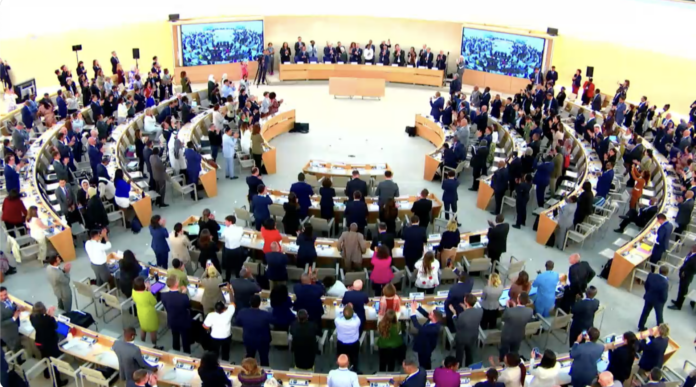“I see no objection, the resolution is adopted,” said Teodoro J. Herbosa, Secretary of Health of the Philippines and President of the 78th World Health Assembly, on Tuesday morning of 20 May. Country delegates welcomed the adoption of the Pandemic Agreement with a round of applause. The agreement, while less ambitious than hoped for at the beginning of the negotiations, still marks an important win for public health and multilateralism after 3 years of talks. The adoption of the Agreement by the WHA is an important milestone, but there is still more work to be done before the ratification process can commence.
“The WHO Pandemic Agreement involved difficult negotiations,” said Thiru Balasubramaniam of Knowledge Ecology International (KEI) in a constituency statement representing KEI, Stichting Health Action International, Oxfam, World Blind Union, and World Council of Churches.
“Several countries sought to limit technology transfer to voluntary measures, including states that in their own laws and regulations provide a path for mandatory measures. Voluntary agreements are important, but when not available or adequate, WHO member states need legal and policy space to regulate or use other measures of a mandatory nature.”
Medicines Law & Policy had focused much of its work on the pandemic agreement on the need for strong language ensuring technology, intellectual property and know-how transfer, covered by Article 11. Timely and equitable access to pandemic countermeasures is essential to save lives in the case of future pandemics; as has often been stated, during an infectious disease outbreak, no one is safe until everyone is safe.
The passage of the agreement faced a brief last-minute hiccup on Monday night, when Slovakia insisted on calling for a vote in one of the World Health Assembly (WHA) Technical Committees about whether or not to pass the resolution onto the WHA plenary for adoption, and some other member states (such as Bulgaria and Israel) raised concerns in statements about the agreement. What followed, however, was a clear outpouring of support, with 124 member states voting in favour of the agreement. While 11 members (Bulgaria, Egypt, Iran, Israel, Italy, Jamaica, the Netherlands, Paraguay, Poland, Russia and Slovakia) abstained from voting, there were no objections. The resolution passed to the plenary, which then adopted it on Tuesday morning.
A video of the discussion can be found here. Look for Committee A, 19/05/2025 – 18:15 – 21:40 to see the vote in the technical committee; and for the Third Plenary meeting, 20/05/2025 9:35-12:50 to see it pass the plenary. Now, an intergovernmental working group will commence to finalise parts of the annex to the agreement, notably on the Pathogen Access and Benefit Sharing System (PABS), which is meant to be completed by the World Health Assembly in 2026. When the annex is adopted, the ratification process can start. The Agreement requires 60 signatures for it to go into force. (see illustration for next steps).
Kaitlin Mara, MSc, has been writing about international intellectual property and innovation policy for over 15 years.
